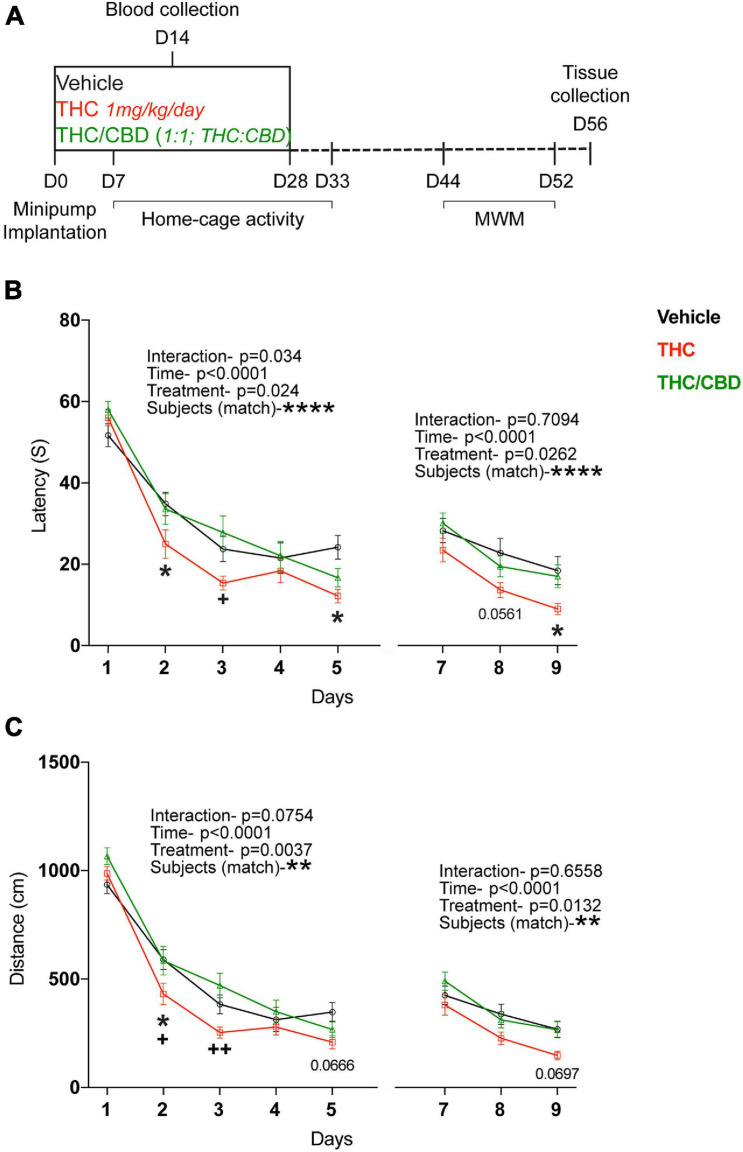FIGURE 1.
Effect of THC and THC/CBD on spatial learning in old mice. (A) Scheme depicting the experimental paradigm. (B) Spatial learning was assessed in the acquisition and reversal phases of the Morris water maze (MWM) test. Spatial learning performance was significantly improved in THC-group compared to vehicle- and THC/CBD-groups. (C) Spatial navigation ability tested during the acquisition and reversal phases of the MWM test. THC significantly improved the spatial navigation ability in old mice compared to vehicle- and THC/CBD-groups (n = 21–25 mice per group). Data represented as mean ± SEM, *p < 0.05 (difference between vehicle- and THC- treatment groups); +p < 0.05, ++p < 0.005 (difference between THC-and THC/CBD-treatment groups); **p < 0.01; ****p < 0.0001 variation between the subjects; p-values stated are the differences between THC- and vehicle- treated groups; 2-way ANOVA (repeated measures) with Tukey’s multiple comparison test.

